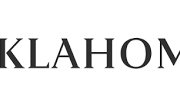This piece originally appeared in PennLive/The Patriot News on January 31, 2024.
State lawmakers have a golden opportunity to strengthen free speech for all Pennsylvanians this year.
A bill currently under consideration by the General Assembly, HB1466, would correct a significant weakness in the law—a weakness that puts you and other Pennsylvanians at risk of costly lawsuits for speaking out.
Those suits are “SLAPPs,” which means “strategic lawsuits against public participation.” Such suits aim to prevent people from exercising their First Amendment right to speak out on a matter of public concern. Deep-pocketed plaintiffs bring SLAPPs, usually in the form of a frivolous defamation lawsuit, not only to silence a particular speaker but also as a way of “chilling” the speech of other would-be speakers who may now remain silent for fear of facing a similar suit.
Even when a SLAPP defendant ultimately prevails, the cost and stress of fighting such a suit inflicts a severe punishment for exercising the right to speak freely.
HB1466 would change that. And it’s already passed the House. Now, the bill is pending in the Senate Judiciary Committee and awaits further action.
The bill contains strong anti-SLAPP protections and tracks the nonpartisan Uniform Law Commission’s model Uniform Public Expression Protection Act (UPEPA). Notably, HB1466 cures the main defect of the commonwealth’s existing anti-SLAPP provisions by protecting all expression on any matter of public concern. Current law only protects communications to government agencies about environmental laws and regulations.
In other words, Pennsylvania’s current law offers no protection if you speak out about taxes, abortion, education, health care, guns, transportation, or countless other topics. Even doing something as simple as leaving an online product review could leave you vulnerable to a SLAPP. The UPEPA-modeled HB1466 fixes this shortcoming.
The bill also contains essential provisions that deter SLAPPs and minimize litigation costs for defendants. UPEPA-based anti-SLAPP protections require plaintiffs to show they have a legitimate case early in the proceedings. They also give defendants a right to an immediate appeal if the court denies the anti-SLAPP motion. Finally, the proposed provisions allow a winning defendant to recover an award of costs and attorney fees and instruct judges to interpret the law’s speech protections broadly.
All of that would be great news for Pennsylvania, which just received a “D-minus” in the Institute for Free Speech’s 2023 Anti-SLAPP Report Card. This report analyzes anti-SLAPP protections in all 50 states plus DC. Pennsylvania’s overall score was just 25 points out of a possible 100. Pennsylvania is the most populous state in the country to receive a “D” or “F.”
Besides being detrimental to free speech, Pennsylvania’s law is also increasingly an outlier amid a growing national trend toward stronger anti-SLAPP protections. In fact, neighboring New York earned an “A+” grade with a score of 99, while New Jersey recently passed a new, strong anti-SLAPP law that instantly raised its grade from an “F” to a solid “A” with a score of 97.
Moreover, for the first time, over half of Americans now live in a state with strong anti-SLAPP protections. UPEPA has helped foster this trend, and six states have already used UPEPA to enact new or improved laws since the 2022 edition of the Anti-SLAPP Report Card, including New Jersey this past September.
Notably, New Jersey’s bill enjoyed deep bipartisan sponsorship and passed unanimously. That level of support—particularly remarkable in deeply partisan times—speaks to the ability of these laws to unite advocates across the ideological spectrum to safeguard a fundamental right.
On the precipice of a major victory for free speech, legislators should move quickly to pass this bill, joining the growing number of states that have wisely chosen to protect their citizens from lawsuits that undermine their First Amendment rights.
David Keating is the President of the Institute for Free Speech and a co-author of the 2023 Anti-SLAPP Report Card.














